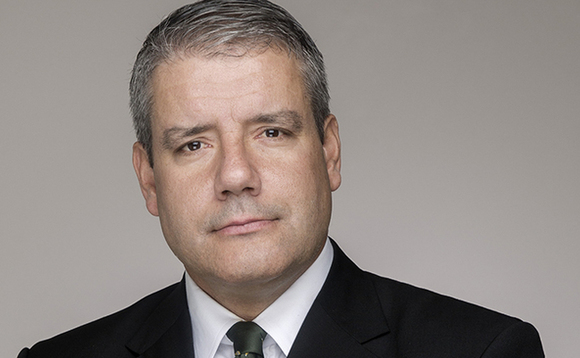
Q&A: Inverleith's Paul Skipworth

UK- and consumer-focused investor Inverleith this week made its fourth investment from its recently closed тЌ60m maiden institutional fund. Kenny Wastell speaks to managing partner Paul Skipworth about the fundraising process and deploying capital in the embattled UK consumer space
Kenny Wastell: You recently closed your first fund on its €60m hard-cap after around six months on the road. What was the fundraising process like in terms of LP appetite and what is your position on co-investments?
Paul Skipworth: LP appetite and interest was strong, with many LPs recognising Inverleith's differentiated offering and sector focus – a private equity fund with strong investment experience, but equally importantly, significant operational expertise within the same team. Given the mid-cap market has significant capital chasing fewer deals, valuations currently appear full. This has been recognised by some mid-cap GPs that have recently launched lower-mid-cap funds.
However, the skills required by the GP in the lower-mid-market are different, with a greater emphasis on operational capabilities, working with earlier-stage businesses to shepherd them through growth and development. Our hybrid skills and experience convinced investors we could find lower-mid-market opportunities and add significant value to them.
Co-investment depends on the deal opportunity – we are open to co-investment.
KW: Despite being headquartered in Scotland, the fund is denominated in euros. What are the reasons behind that decision?
PS: With the majority of Inverleith's investors being European institutions, it was agreed to have a euro fund. The fund has been backed by a number of European institutional investors, pension funds and some family offices.
KW: Being a primarily UK-focused investor specialising in consumer, it is an interesting time to be raising your first fund, given the challenges on the high street. Where do you see the opportunities in that sector currently?
PS: We see a number of macro developments in the consumer sector and trends that make this a great time to invest in smaller companies that have the potential to build strong brands, premiumise and globalise. Costs and market access have never been lower, and genuine, authentic brands are resonating with the consumer. The opportunity is to invest in these smaller businesses, and grow and develop them using our capital and, more importantly, our skills and networks. This enables us to build businesses attractive for both large trade players looking for top-line growth and innovation, as well as to larger private equity funds.
It is certainly an interesting time for the UK high street. Our recent investment Planet Organic represents what we believe is the future of retail: businesses need to develop experiential strategies to attract and retain consumers; build loyalty and provide value and experiences that consumers cannot get online. Planet Organic, with its community-based approach, food-to-go offering and fantastic team, with their deep product knowledge and high service levels, exemplify that approach.
KW: Another key focus for Inverleith is international expansion strategies. With Brexit now a matter of months away, how does the uncertainty surrounding the UK's trading relationship with the EU impact or alter the implementation of those strategies?
PS: We look at companies that are headquartered in the UK and Europe and a key part of our investment criteria for consumer brands is that they have to have the capability for international expansion. If you take The Scotch Malt Whisky Society as an example, when it was acquired by Inverleith, the vast majority of sales were in the UK. Since our investment, we have helped the company to expand the business in Europe, the US, China and Japan, and now international sales account for more than 50% of revenues.
We cannot predict what will happen. We can focus our businesses on growth through a combination of the UK, European, US and Asian markets. We are building strong consumer brands around highly differentiated products in fast-growing consumer sectors. Our consumer base is global.
KW: Aside from Brexit and the UK high street downturn, what are the additional key challenges you foresee in the coming years?
PS: Differentiation and having a unique brand driven by a unique offering is a key challenge. Having the skills and experience to deliver that is the opportunity. We believe there are continued opportunities for brands within the fast-growing sectors of health and wellness, lifestyle and heritage. We look for brands that have a unique selling point; strong, defensible market positions; and the opportunity to become internationally scalable. Consumer brands that are underpinned by high product quality and that have a provenance and authenticity will, in our mind, continue to do well.
Latest News
Stonehage Fleming raises USD 130m for largest fund to date, eyes 2024 programme
Sponsor acquired the public software group in July 2017 via the same-year vintage Partners Group Global Value 2017
Stonehage Fleming raises USD 130m for largest fund to date, eyes 2024 programme
Czech Republic-headquartered family office is targeting DACH and CEE region deals
Stonehage Fleming raises USD 130m for largest fund to date, eyes 2024 programme
Ex-Rocket Internet leader Bettina Curtze joins Swiss VC firm as partner and CFO
Stonehage Fleming raises USD 130m for largest fund to date, eyes 2024 programme
Estonia-registered VC could bolster LP base with fresh capital from funds-of-funds or pension funds









